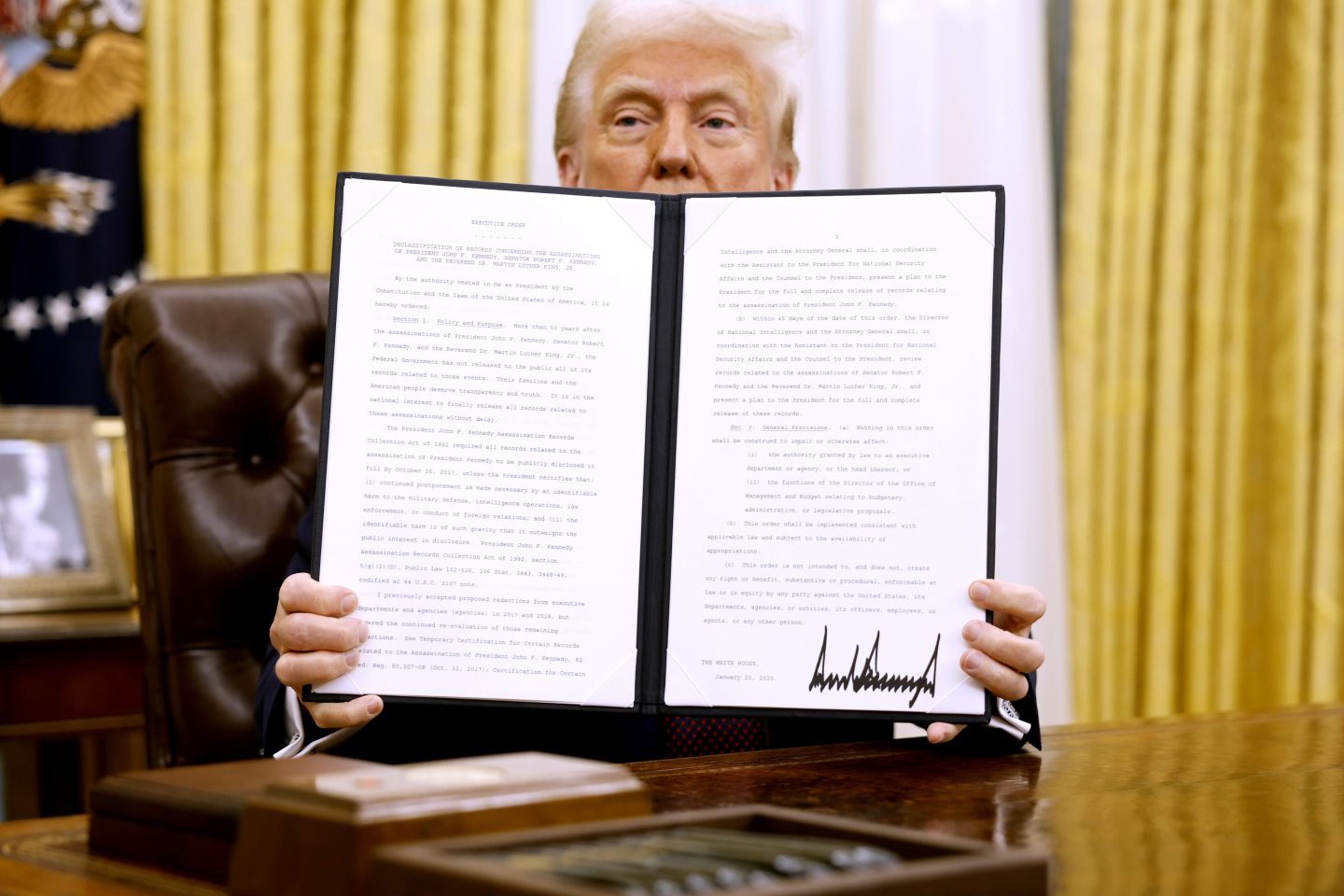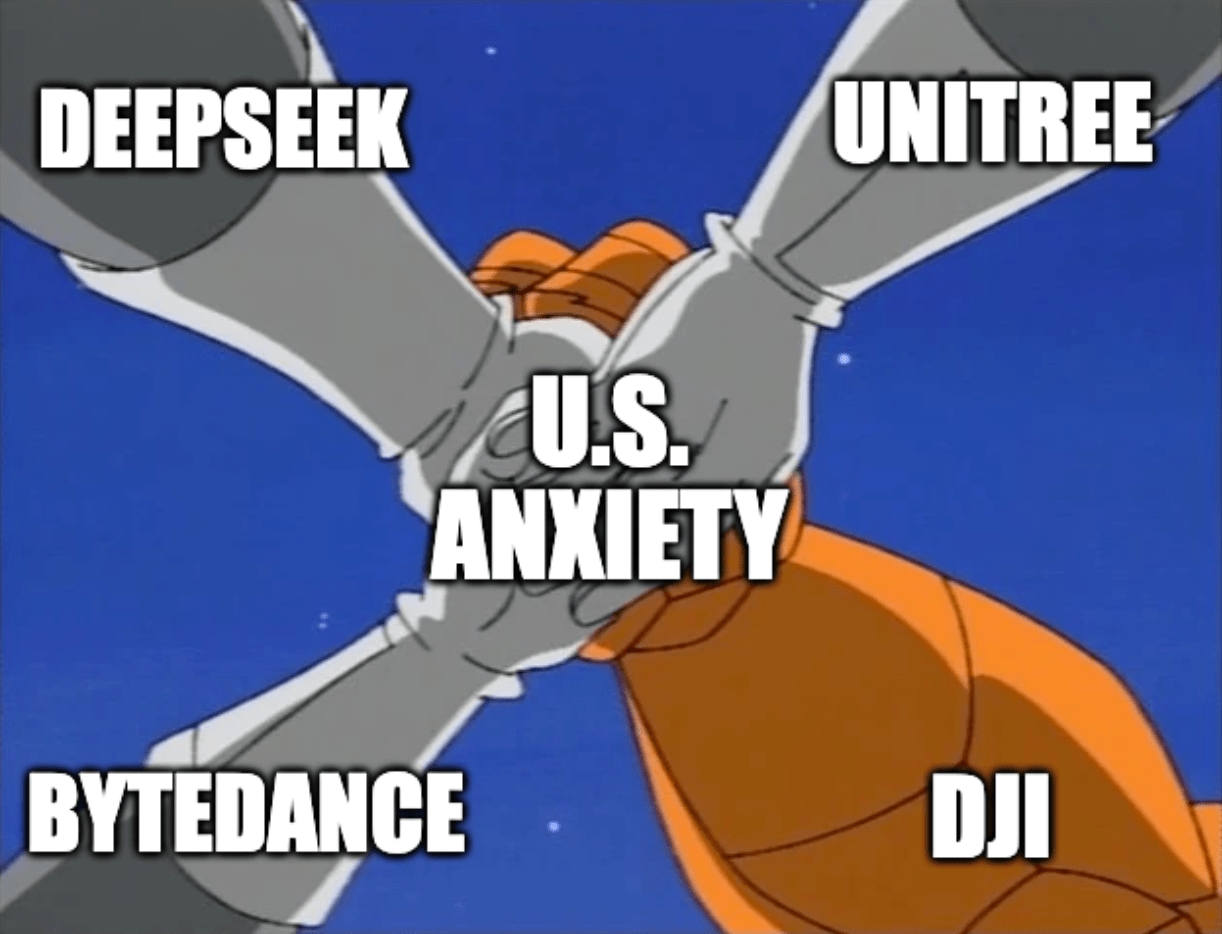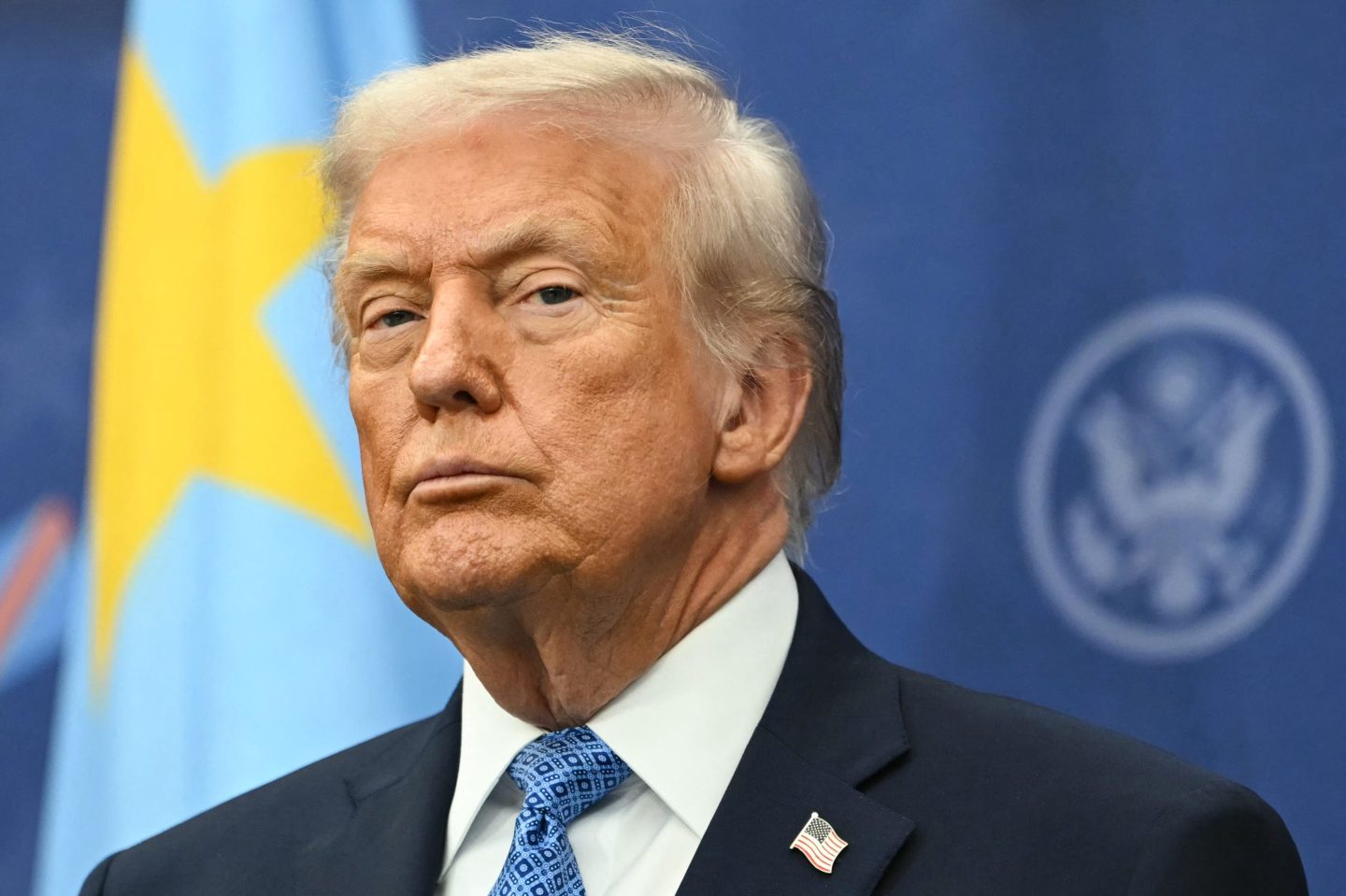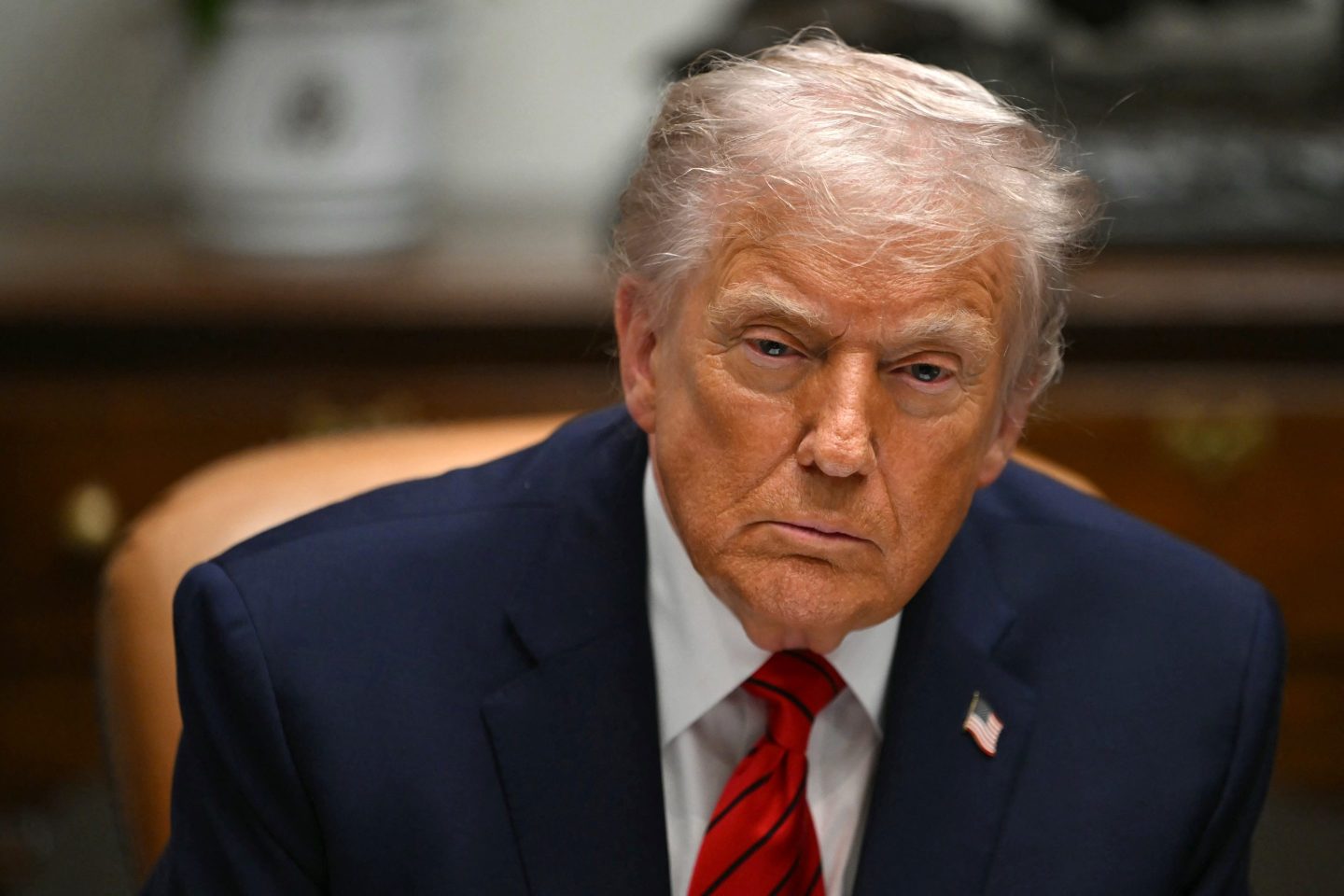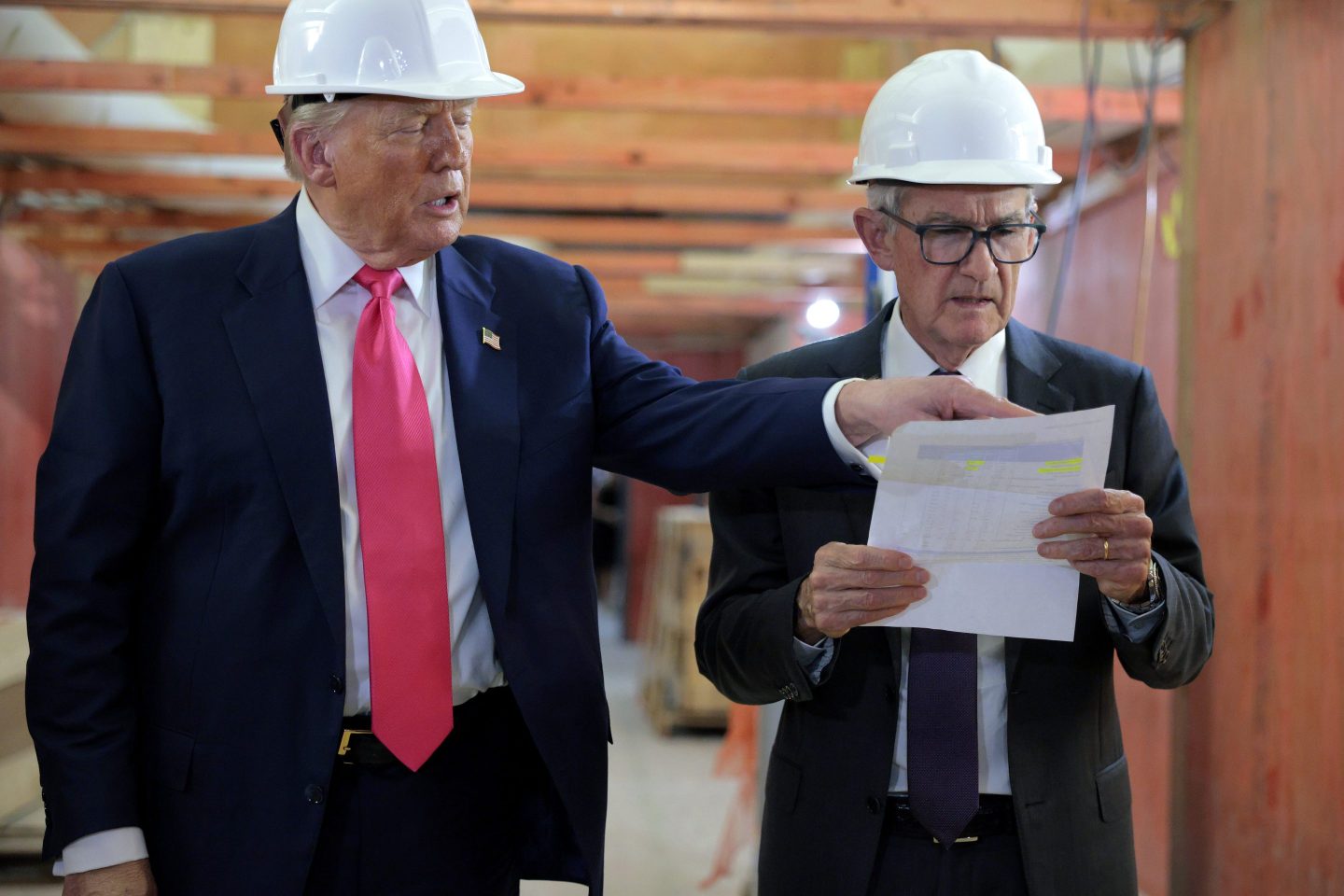Good morning. And the Academy Award for Best Elon Musk Impression goes to…
Awesome, awesome, awesome. Today’s news below. —Andrew Nusca
Want to send thoughts or suggestions to Data Sheet? Drop a line here.
Trump says Bitcoin, Ethereum, XRP, Solana, Cardano will be included in strategic U.S. crypto reserve
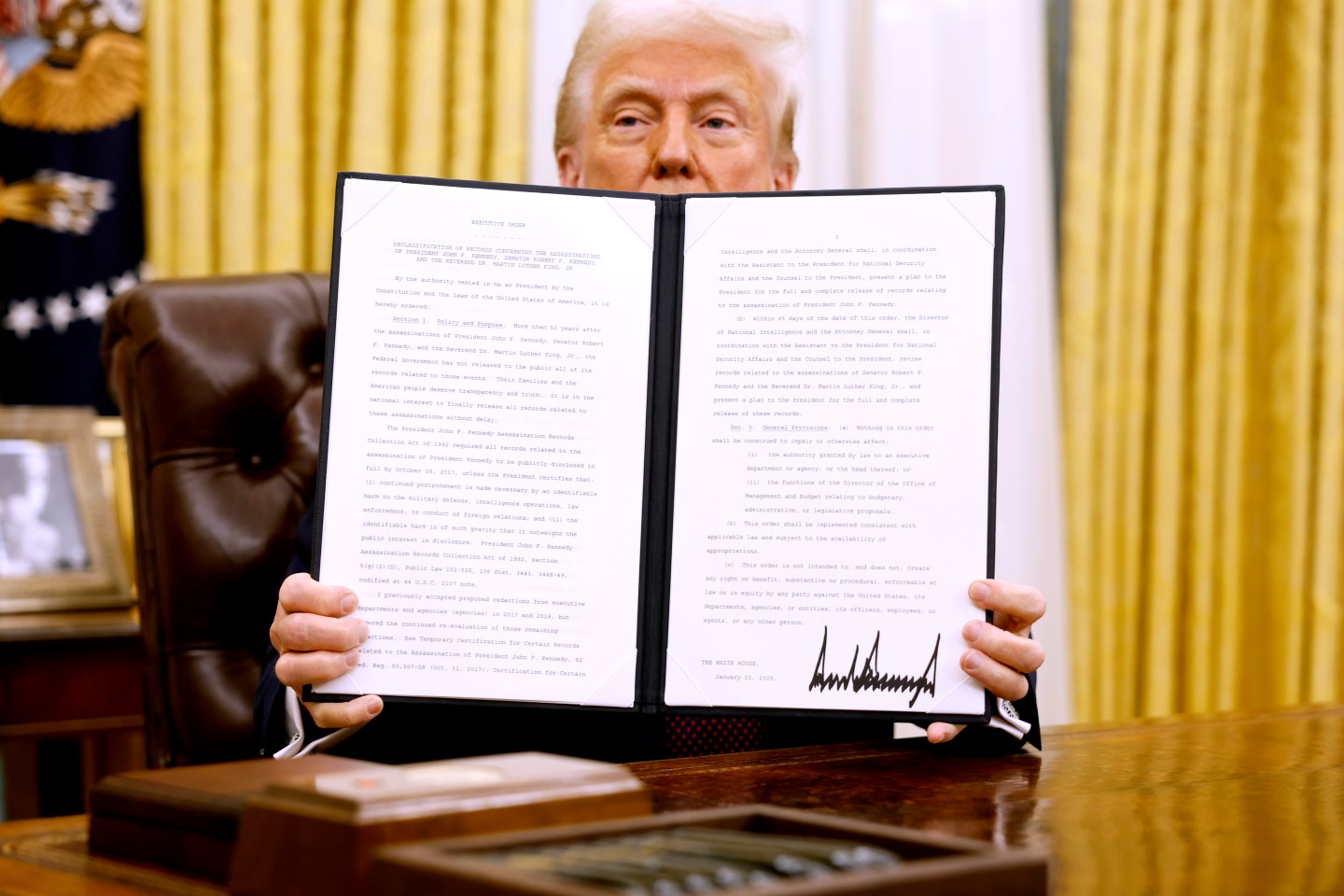
Call it the crypto Trump bump.
The U.S. president shared on social media over the weekend that his January executive order directed his Presidential Working Group “to move forward on a Crypto Strategic Reserve that includes XRP, SOL, and ADA.”
Until the post, he hadn’t yet mentioned specific cryptocurrencies—the January order described only “the potential creation and maintenance of a national digital asset stockpile.”
The news sent traders into a frenzy on Sunday, leading to double-digit percentage gains across most digital assets and helping them recover a significant chunk of last month’s declines.
The mentioned coins are not exactly a shock—they are among the top cryptocurrencies by market value. Only Tether and USDC, which are stablecoins that track the U.S. dollar, plus Binance Coin didn’t make it.
However the crypto reserve actually plays out—there hasn’t been any indication of how much the government might buy and from where it would get the cash, though the January order suggested some could come from seized assets from law enforcement—the announcement continues to reaffirm that the Trump administration hopes to put wind in the sails of the crypto industry.
In recent weeks, the Securities and Exchange Commission dropped several cases and investigations into crypto companies. And Trump named PayPal mafioso turned investor David Sacks as his AI and crypto czar well before Inauguration Day. —AN
A conversational Siri won’t come until 2027, Apple insiders say
Apple’s AI efforts are now at “a make or break point,” according to longtime Apple watcher Mark Gurman—especially now that the world has seen Amazon’s plans for Alexa+.
In his latest column, the Bloomberg correspondent notes that Apple’s slow entry into the artificial intelligence race isn’t its usual hang-back-and-let-the-dust-settle-before-dominating approach, but a true lack of competitive verve.
He calls it “Apple’s AI crisis.” Low usage numbers for its Apple Intelligence suite underscore the issue.
The next Siri is expected in May and will presumably address a major reason why Siri just hasn’t been able to cut it, competitively: because it’s really two separate systems, one for legacy commands, another for advanced queries.
“For iOS 19, Apple’s plan is to merge both systems together and roll out a new Siri architecture,” Gurman writes. Apple insiders are calling it “LLM Siri” internally.
Before Siri can be more conversational and competitive with OpenAI’s ChatGPT and Amazon’s latest, Apple needs to fix the underlying infrastructure.
Which means “a true modernized, conversational version of Siri won’t reach consumers until iOS 20 at best in 2027,” according to Gurman’s sources within Apple’s AI division—nevermind the fact that Apple’s rivals have no plans to sit on their hands. —AN
R.I.P. Skype (2003-2025)
Microsoft is killing off Skype. The service will cease to exist on May 5th.
“At this point, putting all our focus behind Teams will let us give a simpler message and drive faster innovation,” said Microsoft 365 apps and platform chief Jeff Teper.
More youthful readers probably won’t appreciate how big a deal Skype used to be—a rare European success story, founded over 21 years ago, that at its peak had over 300 million monthly users—just shy of Teams’ current numbers.
Skype was the service that taught the world that, thanks to the internet, they no longer needed to pay an absolute fortune to call people in other countries. It up-ended the telecommunications market. Its name was a widely used verb.
It originally used peer-to-peer technology, which was a big reason why eBay bought it in 2005. However, eBay made the rookie mistake of not actually buying the underlying P2P technology, which led to a hugely entertaining dispute when it wanted to sell a majority stake to a Silver-Lake investor group in 2009.
Skype founders Niklas Zennstrom and Janus Friis, who still owned the core technology, wanted to buy Skype back, but eBay said no, so they sued over an alleged licensing infringement. EBay settled, giving the pair a 14% stake in Skype. The investor group deal went through, and two years later Microsoft paid a whopping (especially at the time) $8.5 billion for the whole shebang.
Microsoft then gradually centralized Skype’s workings, with the loss of its P2P sauce allowing for more features but also rendering Skype indistinguishable from its, er, peers. And now, inevitably, it’s the end of an era. —David Meyer
More data
—Voice phishing attacks are up 442%, thanks to generative artificial intelligence.
—Mastercard exits deal with top VC firm in Africa, leaving a gap for early-stage startups.
—China to AI leaders: Don’t travel to U.S. because you could be detained and share confidential information.
—Pinterest is fighting “AI slop.” Fake recipes, interior design, hair styling, etc. is killing the vibe.
—SoftBank may borrow $16 billion to invest in AI, despite its heavy debts. It might borrow another $8 billion in 2026.
—China will regulate self-driving software updates. Authorities are wary of automakers using them to conceal defects or avoid liability.
—Sensei Ag is troubled. Eight years and half a billion dollars in, Larry Ellison and David Agus’s venture promising to modernize agriculture with tech has failed to make an impact.
